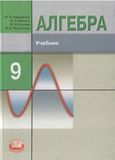Стр.59 Unit 4 Что дальше? ГДЗ Комарова Ларионова 9 класс
Грамматика
will, be going to и present continuous для будущего
will
• Мы используем will или won't + инфинитив без частицы to, чтобы делать прогнозы о будущем.
I'll have the chance to do some work experience. (У меня будет возможность получить опыт работы.)
I won't be the only girl on the course. (Я буду не единственной девушкой на курсе.)
• Обычно мы используем сокращения ('ll вместо will и won't вместо will not), когда говорим.
• Мы используем will/won't для всех лиц. Мы не используем окончание -s в третьем лице.
He will take that exam. V (Он сдаст экзамен.)
He wills take that exam. X
• Мы не используем do/does в отрицательных предложениях.
They won’t earn a lot of money. V (Они не заработают много денег.)
They don’t will earn a lot of money. X
• В вопросах порядок такой: Will/Won't + подлежащее + инфинитив без частицы to. Мы не повторяем инфинитив без частицы to в коротких ответах.
Will the job be well-paid? (Будет ли эта работа хорошо оплачиваемой?)
Yes, it will. / No, it won’t. (Да. / Нет.)
be going to
• Мы используем be going to, чтобы говорить о планах и намерениях на будущее.
• Для формирования предложений мы используем:
субъект + be + going to + инфинитив без частицы to.
I’m going to be a plumber! (Я собираюсь стать водопроводчиком!)
Alison isn’t going to take A-Levels. (Элисон не собирается сдавать экзамены A-Levels.)
• В вопросах порядок такой: be + субъект + going to + инфинитив без частицы to. В коротких ответах мы не повторяем going to + инфинитив без частицы to.
Are they going to take a gap year? (Они собираются взять годовую паузу в учебе?)
Yes, they are. / No, they aren't. (Да. / Нет.)
present continuous для будущего
• Мы используем present continuous для обозначения определенных планов и договоренностей в будущем.
• Мы образуем present continuous с помощью субъекта + be + глагол + -ing.
I'm starting an apprenticeship next month. (В следующем месяце я начинаю стажировку.)
They aren't taking the exam in June. (Они не сдают экзамен в июне.)
• В вопросах порядок такой: be + субъект + глагол + -ing. В кратких ответах мы не повторяем глагол + -ing.
Is your friend doing the course too? (Ваш друг тоже проходит этот курс?)
Yes, he is. / No, he isn't. (Да. / Нет.)
Герундии и инфинитивы
• За некоторыми глаголами следует герундий (глагол + -ing).
I like swimming. (Мне нравится плавать.)
• За некоторыми глаголами следует форма инфинитива.
I need to sleep. (Мне нужно поспать.)
герундии
• Когда мы говорим о том, что нам нравится или не нравится, мы обычно используем герундий.
I enjoy playing the trumpet. (Мне нравится играть на трубе.)
I can't stand wearing a suit. (Я терпеть не могу носить костюм.)
• Другие глаголы также употребляются с этой формой, например, глагол avoid (избегать). Когда вы учите новый глагол, всегда проверяйте его форму в словаре и записывайте ее.
I avoid singing at all costs! (Я избегаю пения любой ценой!)
• Мы также используем герундий после предлогов.
I'm interested in studying photography. (Я заинтересован в изучении фотографии.)
Инфинитивы
• После некоторых глаголов употребляется инфинитив, например, после глаголов want (хотеть), help (помогать), need (нуждаться). Обращайте внимание на них, когда они вам попадутся.
I want to learn French. (Я хочу выучить французский язык.)
• Мы также используем инфинитив после прилагательных.
It's difficult to commute to work every day. (Трудно ездить на работу каждый день.)
• Мы также используем инфинитив, чтобы объяснить причину или цель совершения какого-либо действия.
She took the job to make some money. (Она согласилась на эту работу, чтобы заработать немного денег.)
Приведем выдержку из задания из учебника Комарова, Ларионова 9 класс, Русское слово:
Grammar
will, be going to and present continuous for future
will
We use will or won't + infinitive without to make predictions about the future.
I'll have the chance to do some work experience.
I won't be the only girl on the course.
We normally use contractions (‘ll not will and won’t not will not) when we speak.
We use will/won't for all persons. We don't use -s in the third person.
He will take that exam.
He wills take that exam.
We don’t use do/does in negative sentences.
They won’t earn a lot of money.
They don’t will earn a lot of money.
In questions, the order is Will/Won’t + subject + infinitive without to. We don’t repeat the infinitive without to in short answers.
Will the job be well-paid?
Yes, it will./No, it won’t.
be going to
We use be going to talk about plans and intentions for the future.
To form sentences we use:
subject + be + going to + infinitive without to.
I’m going to be a plumber!
Alison isn’t going to take A-levels.
In questions, the order is be + subject + going to + infinitive without to. We don’t repeat going to + infinitive without to in short answers.
Are they going to take a gap year?
Yes, they are. / No, they aren't.
present continuous for future
We use the present continuous for definite plans and arrangements in the future.
We form the present continuous with subject + be + verb + -ing.
I'm starting an apprenticeship next month.
They aren't taking the exam in June.
In questions, the order is be + subject + verb + -ing. We don’t repeat verb + -ing in short answers.
Is your friend doing the course too?
Yes, he is. / No, he isn't.
Gerunds and infinitives
Some verbs are followed by a gerund (verb + -ing).
I like swimming.
Some verbs are followed by an infinitive form.
I need to sleep.
gerunds
When we talk about likes or dislikes, they are normally followed by the gerund.
I enjoy playing the trumpet.
I can't stand wearing a suit.
Other verbs also take this form, eg, avoid. When you learn a new verb always check which form it uses in a dictionary and make a note of it.
I avoid singing at all costs!
We also use the gerund after prepositions.
I'm interested in studying photography.
infinitives
Some verbs are followed by the infinitive, eg, want help, need. Make a note of these when you come across them.
I want to learn French.
We also use the infinitive after adjectives.
It's difficult to commute to work every day.
We also use the infinitive to explain the reason or purpose for doing something.
She took the job to make some money.
Популярные решебники 9 класс Все решебники
*К сожалению, временные проблемы с публикацией комментариев с мобильных устройств.





